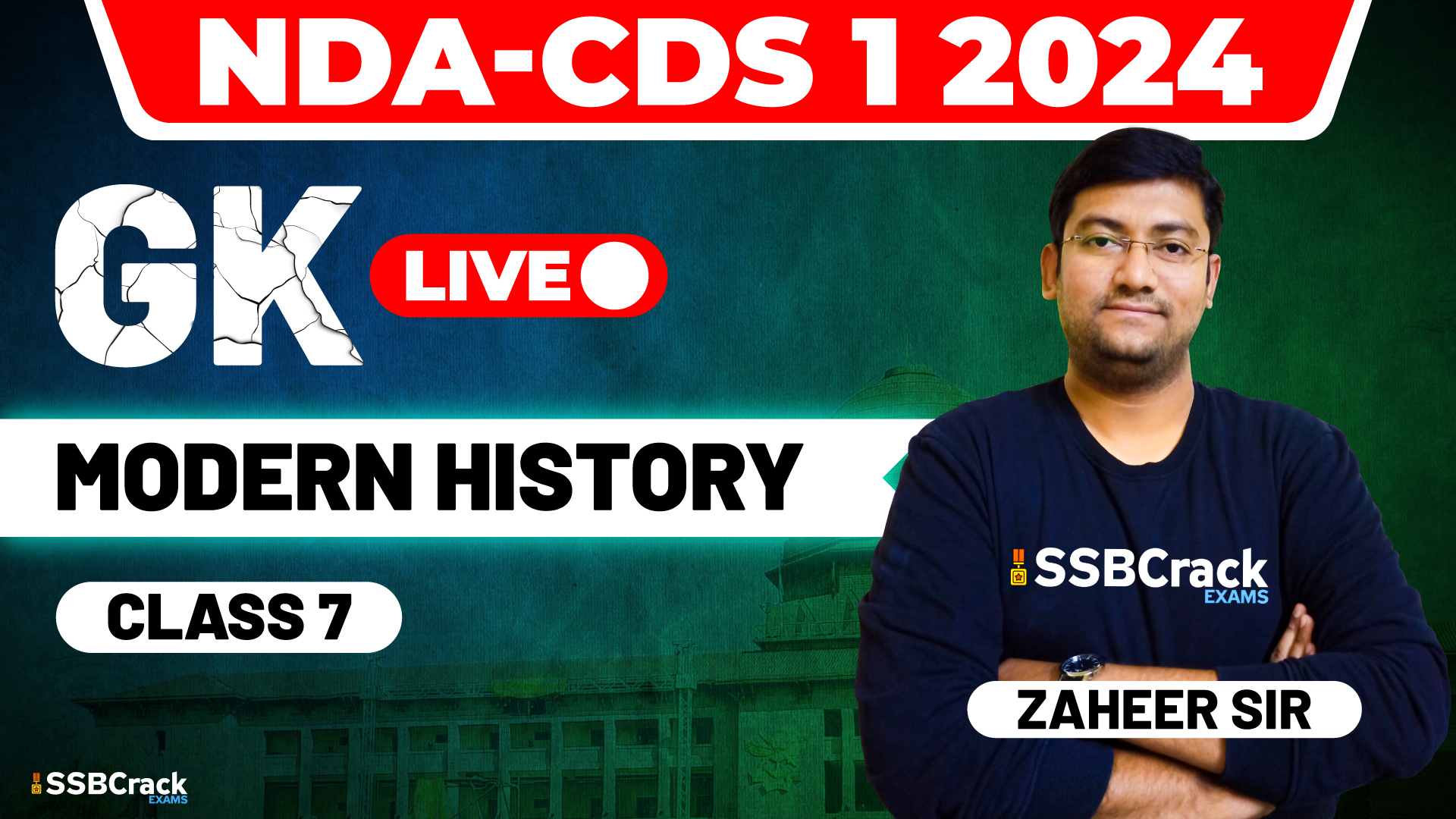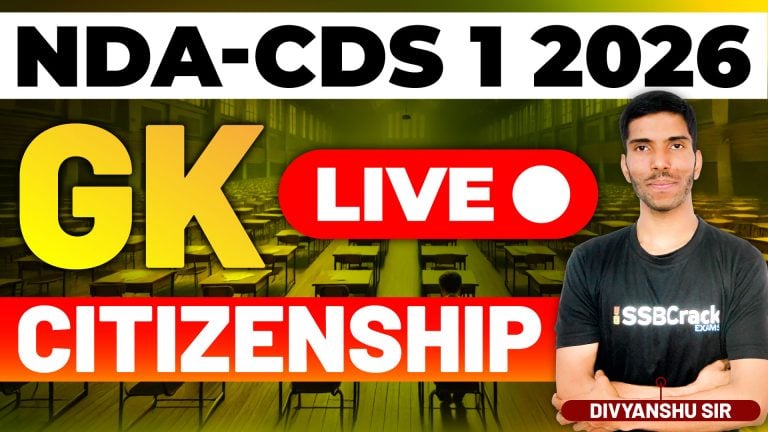Modern Indian history is a crucial subject for aspirants preparing for the National Defence Academy (NDA) and Combined Defence Services (CDS) examinations. This history class covers a wide range of topics such as the Revolt of 1857, Peasant, Tribal, and Civil Uprisings in India, the Indian Renaissance, and Socio-Religious Reform Movements in India. Understanding these historical events and movements is not just a matter of academic interest; it is vital for candidates aiming to excel in the NDA and CDS exams. In this article, we will explore why this lecture is of paramount importance in preparing for these prestigious examinations.
- Understanding the Roots of Nationalism
The Revolt of 1857, also known as the First War of Independence, marks a significant turning point in Indian history. This event, which erupted as a result of various grievances against British colonial rule, sowed the seeds of Indian nationalism. Aspirants must grasp the intricacies of this revolt to comprehend the origin of the nationalist movement in India. Questions related to the 1857 Revolt are commonly asked in NDA and CDS exams, making it essential for candidates to have a thorough understanding of this pivotal event.
- Insights into Social and Economic Transformations
Peasant, tribal, and civil uprisings in India are integral to the broader context of socio-economic changes during the colonial period. These movements were often responses to oppressive policies, land revenue systems, and social injustices. A deep dive into these uprisings allows candidates to appreciate the socio-economic challenges faced by the Indian society of that era. Moreover, questions related to the impact of these uprisings on Indian society and the British administration are common in these exams.
- The Cultural and Intellectual Renaissance
The Indian Renaissance, a period of cultural and intellectual awakening, played a crucial role in shaping modern India. It witnessed the resurgence of Indian art, literature, philosophy, and science. This period saw the works of luminaries like Raja Ram Mohan Roy, Ishwar Chandra Vidyasagar, and Swami Vivekananda, who were instrumental in fostering a sense of national pride and modernity. A solid grasp of this aspect of modern Indian history can aid candidates in answering questions about the cultural and intellectual developments of the time.
- Socio-Religious Reform Movements
Socio-religious reform movements in India, spearheaded by reformers like Swami Dayanand Saraswati and Raja Ram Mohan Roy, were aimed at challenging orthodox practices and advocating for social reforms. These movements laid the foundation for a more inclusive and progressive society. Questions about these reform movements and their impact on Indian society often appear in NDA and CDS exams, making it imperative for aspirants to have a comprehensive understanding of these topics.
- Linking History to Current Affairs
Studying modern Indian history isn’t just about memorizing facts; it’s about gaining a deeper perspective on the challenges and achievements of the past. A strong foundation in this subject enables candidates to connect historical events to contemporary issues, a skill that is highly valued in the NDA and CDS exams. Understanding the historical context helps candidates analyze current affairs from a more informed standpoint, which can be especially valuable in the interview and group discussion rounds of these examinations.
Conclusion
In conclusion, the study of modern Indian history is an indispensable component of NDA and CDS exam preparation. It equips aspirants with the historical knowledge and perspective necessary to answer questions about the nation’s past, its struggles, and its socio-cultural transformations. Moreover, it enables candidates to connect history with the present, fostering a holistic understanding of India’s journey. Therefore, every NDA and CDS aspirant should approach this history lecture with diligence and enthusiasm, as it is a stepping stone to success in these prestigious examinations.







